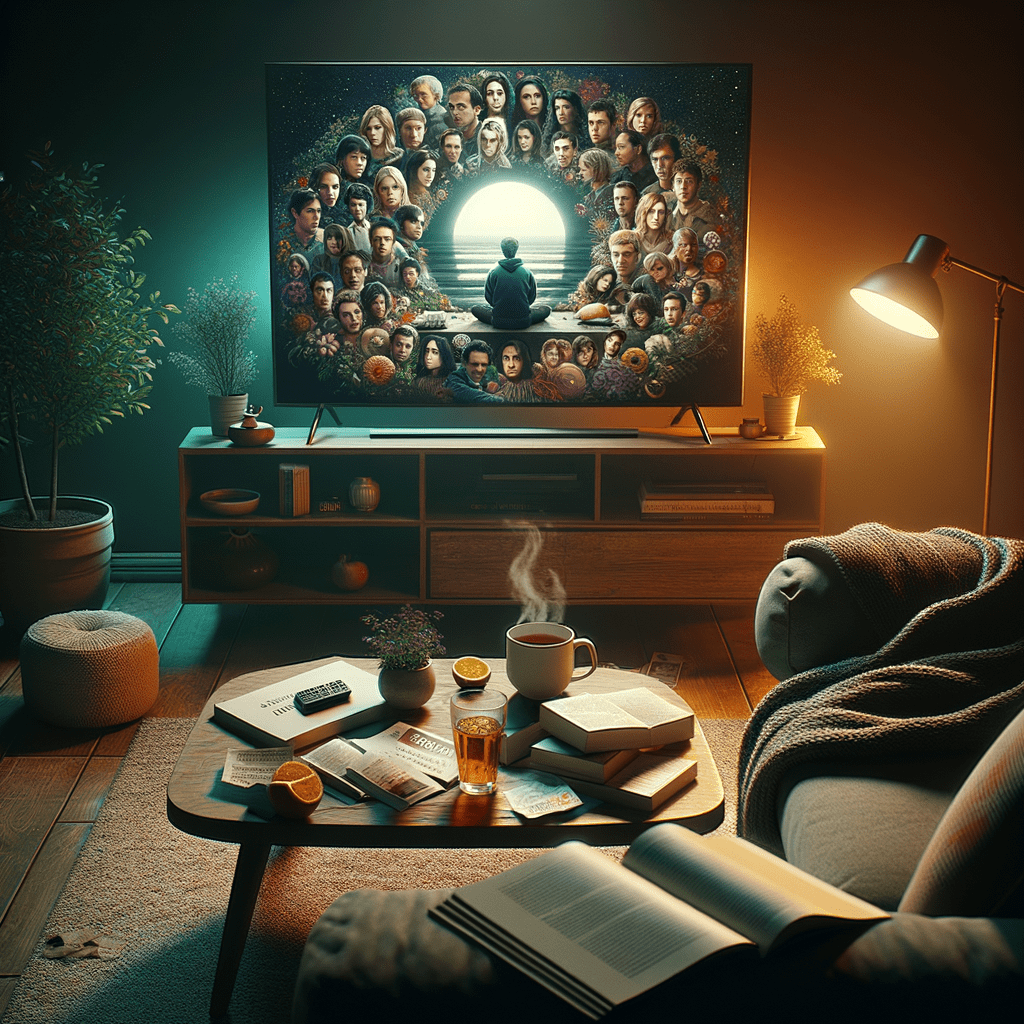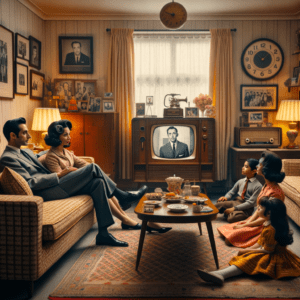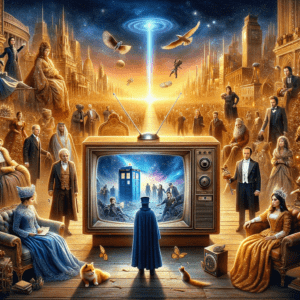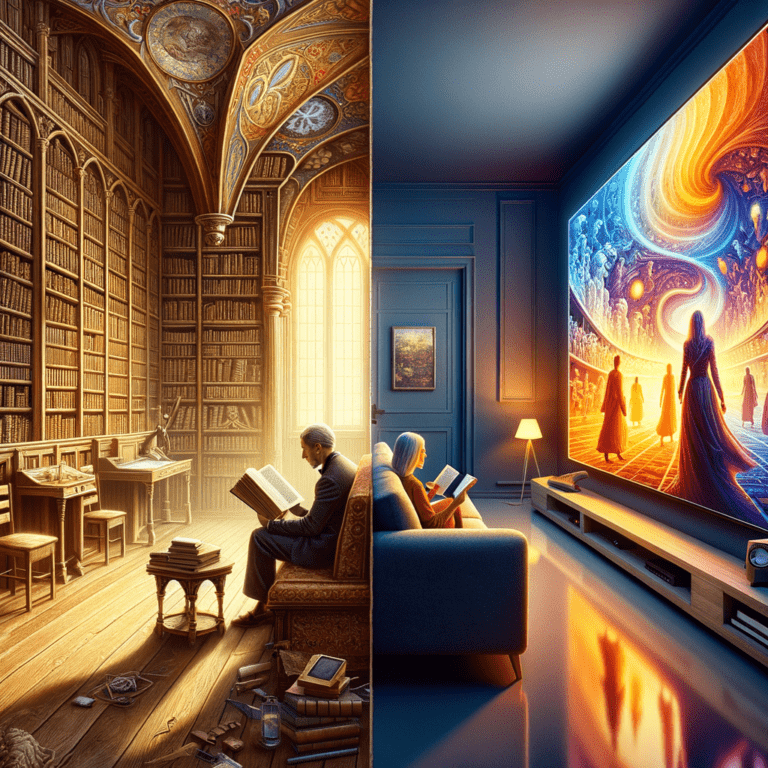TV shows, over the years, have become so much more than just entertainment for me – they’ve turned into a little window into the parts of the human experience that we sometimes find hard to talk about, like mental health. You know that feeling when you’re watching a show and suddenly you’re like, “Wow, this feels like they crawled right inside my head”? That’s TV magic at its best. It’s like holding a mirror to our lives, capturing those subtle things just right.
I’m genuinely impressed by how some shows handle mental health with such care and sincerity. It’s like these shows open a dialogue on topics that used to feel untouchable. They’re not afraid to dive deep with a nuanced, sometimes delightfully messy approach that’s just so relatable. I mean, who hasn’t been a messy work-in-progress at some point, right?
BoJack Horseman
So, let’s kick things off with “BoJack Horseman.” I get it—it’s a cartoon with a talking horse—seriously? But here’s the thing: underneath all the bright colors and satirical laughs, this show paints a beautifully genuine picture of depression and addiction. It’s like a sneak peek into the mind of someone who just can’t escape their own self-destructive habits, despite having what looks like everything going for them.
BoJack’s character, a once-famous actor, is tumbling into a pit of self-loathing and dissatisfaction. What really grabs me about this show is its refusal to sugarcoat the complexity of mental health. It’s raw. There are no quick fixes all wrapped up by the end of each episode. Instead, it spills the hard truth that healing isn’t always a straight line, and that’s totally okay.
The show also does an amazing job showing how BoJack’s mental health impacts everyone around him. It dives into themes of forgiveness—not just from others but the harder part, forgiving oneself. “BoJack Horseman” resonates deeply because it reminds us that often, we are our own worst enemies, and accepting help? That’s not a weakness.
Crazy Ex-Girlfriend
Now, let’s shift gears to “Crazy Ex-Girlfriend.” From animation to musical comedy-drama—bear with me here—this show approached mental health in a groundbreaking way. When I first tuned in, I thought it would be all romcom shenanigans. But it was much, much more. It follows Rebecca Bunch, a successful lawyer ditching her New York life to follow an old flame to California.
The amazing part is how the series tackles mental health with humor. It’s like facing life’s toughest moments with a chuckle because sometimes, isn’t that all you can do? Rebecca’s journey with borderline personality disorder is handled with humor and heart. She’s flawed, makes iffy choices, and at times you want to yell at her through the screen—which is precisely why she feels so real.
This series peels back the layers, showing mental health journeys as anything but straightforward. The honesty about medication, therapy, and the stigma surrounding mental illness made me nod in agreement, thinking, “Yes, exactly!”
13 Reasons Why
Next on the list is “13 Reasons Why,” a show that stirred up tons of conversations, and not always the warm fuzzy kind. Love it or criticize it, what can’t be denied is its unsettling, thought-provoking look into mental health among teens. It’s a difficult watch, for sure; no sugarcoating here. It steers straight into topics like bullying, suicide, and trauma.
“13 Reasons Why” stands out with its bravery in tackling uncomfortable truths. Love it or hate it, gotta admit it opened up conversations about things that are often kept in the shadows. It forcefully reminds us that words and actions echo far. It’s heartbreaking, and maybe that’s why it strikes such a chord.
Sidebar though—approach this one cautiously. It’s heavy stuff. Be ready for talks afterward because you’ll definitely need them.
This Is Us
Switching it up a bit, let’s dive into “This Is Us.” Oh man, this show. Just thinking about it makes me want to grab tissues. This multi-generational family drama unravels so many life aspects and handles mental health with such elegance.
I’m drawn to “This Is Us” because of its authenticity in tackling anxiety, depression, and PTSD. The Pearsons mirror many families facing inherited trauma and learning to heal, one heartfelt episode at a time. Randall’s anxiety storyline is beautifully woven into the show; it feels personal. His struggles are depicted as part of his identity, experiences, and family dynamics.
The gem of “This Is Us” is empathy. As it unravels the reasons behind each character’s struggles, it quietly tells us everyone has their own battles. It masterfully reassures that not having all the answers is okay. Pro tip: tissues are essential.
You’re the Worst
“You’re the Worst” sneaks under the radar. Initially, it seems like another romcom about two dysfunctional folks finding each other. But, dig deeper, and you’ll find it exploring clinical depression and PTSD head-on.
Gretchen’s depression is portrayed without filters. It’s chaotic, unpredictable, often dark, but handled with refreshing vulnerability. The show leaves her storyline tidy-free because, in real life, easy answers aren’t always there. Some scenes hit home hard, as if it’s reaching through the screen, understanding you at your weakest.
To look at PTSD, there’s Edgar, a war veteran trying to reintegrate, his journey echoing the same rich depth. “You’re the Worst” doesn’t back down from the hard stuff, and in doing so, finds a surprising grace.
Perhaps what makes these portrayals impactful is how they integrate mental illness into characters’ lives, not as a defining feature. It’s messy, but isn’t that what being human is about? Flawed, imperfect, beautiful in complexity.
Please Like Me
If you’re craving something lighter but equally impactful, there’s “Please Like Me.” This Australian dramedy is a gem, shining a light on mental health with humor and heart. It feels so authentic in portraying life while dealing with a loved one’s mental illness. Intimate yet relatable.
Take Josh, the main character, navigating life’s waters while handling his mom’s depression. The show sprinkles humor over heavy topics, making them easier to digest. It softens the fear around openly discussing mental illness.
While not as widely known, “Please Like Me” nails normalizing mental health conversations. It’s genuine, warm, like a comforting hug when life turns a bit rough.
At the end of the day, these shows stand out for committing to truth. They bravely sit with the messy, sometimes complicated nature of mental health issues. They gently remind us that it’s okay to be vulnerable, to get help, and importantly—we’re not alone. Through tears or laughter, these shows, for a moment, make life feel a bit less daunting.
The real beauty? They open discussions, foster empathy, and bring understanding—because mental health touches everyone. Watching these series teaches us that seeking help isn’t weak; it’s one of the bravest steps you can take. And for this, I’m thankful.
Isn’t it simply amazing how TV can delve into mental health, offer insight, and bring viewers together? Every story, character, adds something relatable, reassuring us it’s okay to be imperfect, a bit lost, and still finding our way. Because in truth, aren’t we all?











